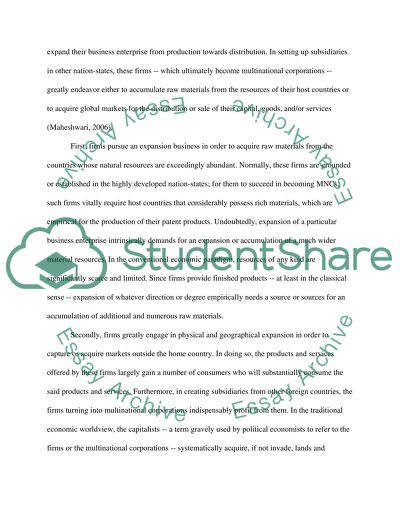Cite this document
(The Role of Multinational Corporations Essay Example | Topics and Well Written Essays - 2000 words, n.d.)
The Role of Multinational Corporations Essay Example | Topics and Well Written Essays - 2000 words. Retrieved from https://studentshare.org/macro-microeconomics/1574853-the-role-of-multinational-corporations-in-developing-economies
The Role of Multinational Corporations Essay Example | Topics and Well Written Essays - 2000 words. Retrieved from https://studentshare.org/macro-microeconomics/1574853-the-role-of-multinational-corporations-in-developing-economies
(The Role of Multinational Corporations Essay Example | Topics and Well Written Essays - 2000 Words)
The Role of Multinational Corporations Essay Example | Topics and Well Written Essays - 2000 Words. https://studentshare.org/macro-microeconomics/1574853-the-role-of-multinational-corporations-in-developing-economies.
The Role of Multinational Corporations Essay Example | Topics and Well Written Essays - 2000 Words. https://studentshare.org/macro-microeconomics/1574853-the-role-of-multinational-corporations-in-developing-economies.
“The Role of Multinational Corporations Essay Example | Topics and Well Written Essays - 2000 Words”. https://studentshare.org/macro-microeconomics/1574853-the-role-of-multinational-corporations-in-developing-economies.


